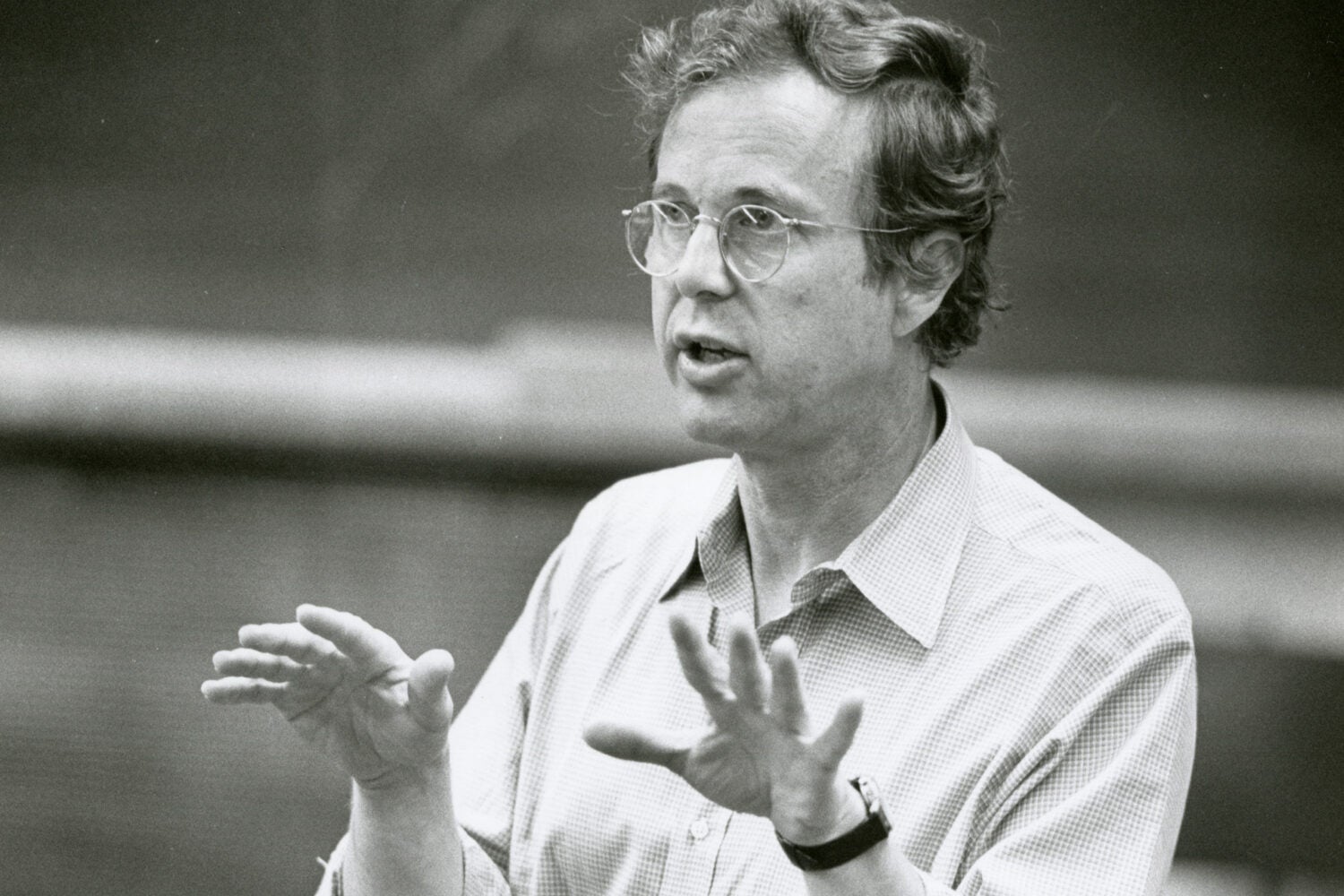Gerald E. Frug ’63, a pathbreaking scholar who reinvented the field of local government law, and a superb teacher and mentor, died Nov. 7 after a long illness. The Louis D. Brandeis Professor of Law Emeritus at Harvard Law School was 84.
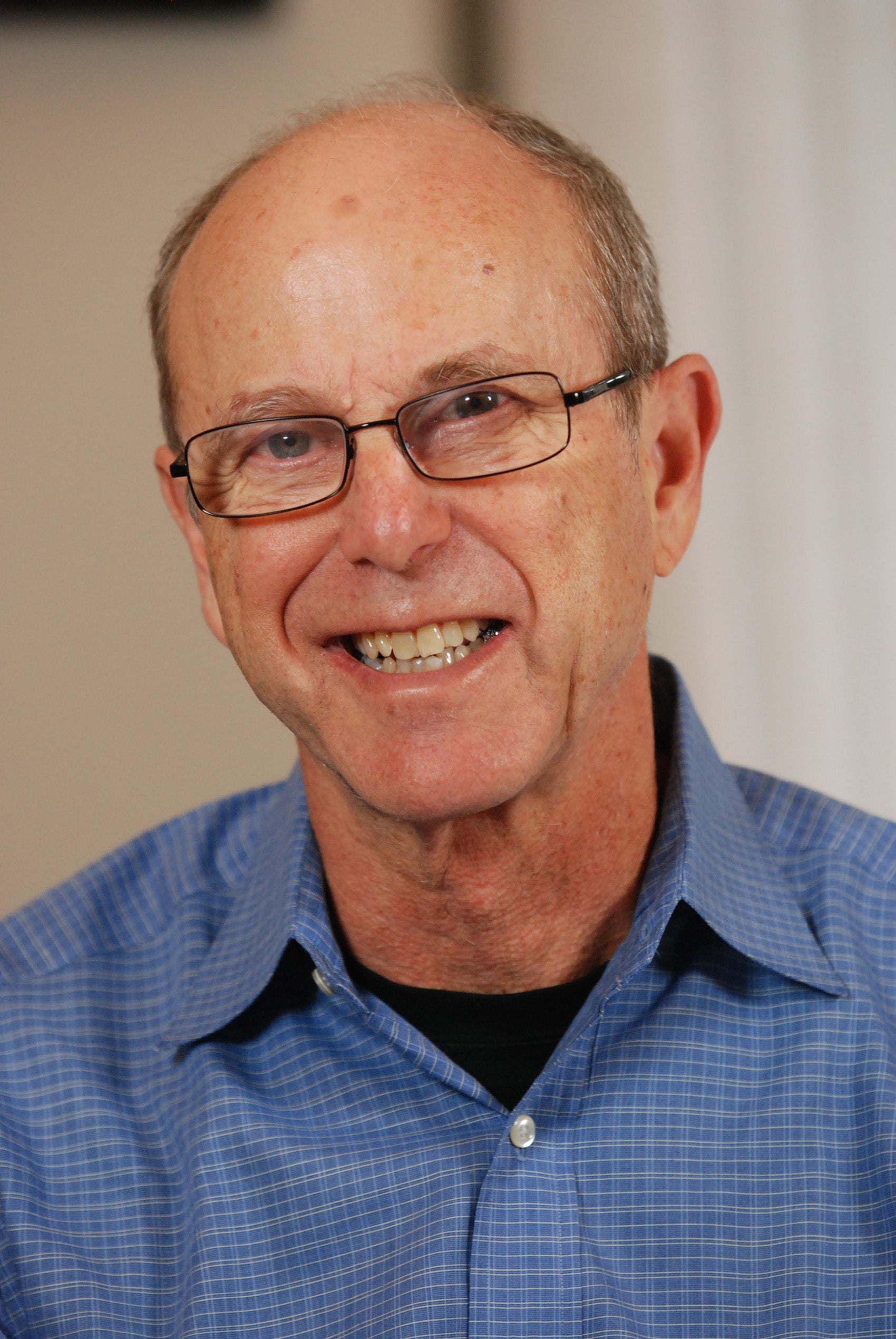
“In his work in local government law, Jerry helped bring a deeper understanding to the city and to particular cities all over the world, whose legal, political, economic, social, and physical landscapes he and his co-authors brought into vivid focus,” said John F. Manning ’85, Morgan and Helen Chu Dean and Professor of Law, in a message to the law school community. “No one wrote with more clarity and insight about the relationship between city power and regionalism. In all his writing, which was informed by deep collaborations across Harvard and other great universities, Jerry sought to understand cities in their deeper context, and he enabled us to do so as well. The many important scholars whose work he shaped and inspired provide a moving testament to his intellectual power and personal generosity.” Manning added that “Jerry Frug was also a legendary teacher, not only in Local Government Law but also in first-year Contracts,” and “was a great mentor to many both in the classroom and in the profession.”
David Barron ’94, a judge on the U.S. Court of Appeals for the 1st Circuit, and the Louis D. Brandeis Visiting Professor of Law at Harvard Law, is one of the many former students who have been inspired by Frug.
“Jerry was an utterly distinctive thinker and person,” said Barron. “He was amused and amazed by the ambiguity of law, but he had strong convictions and deep commitments. He was enchanted by cities but deeply tied to those closest to him. He loved to teach and had great affection for his students. He transformed a whole field of law — local government law — and inspired generations to give it new vitality. He was for me the central figure in my legal education and then my co-teacher and co-author. But he was also my dear, dear friend for almost three decades. He will stay with me forever.”
“He was for me the central figure in my legal education and then my co-teacher and co-author. But he was also my dear, dear friend for almost three decades. He will stay with me forever.”
David Barron ’94, a judge on the U.S. Court of Appeals for the 1st Circuit, and the Louis D. Brandeis Visiting Professor of Law at Harvard Law
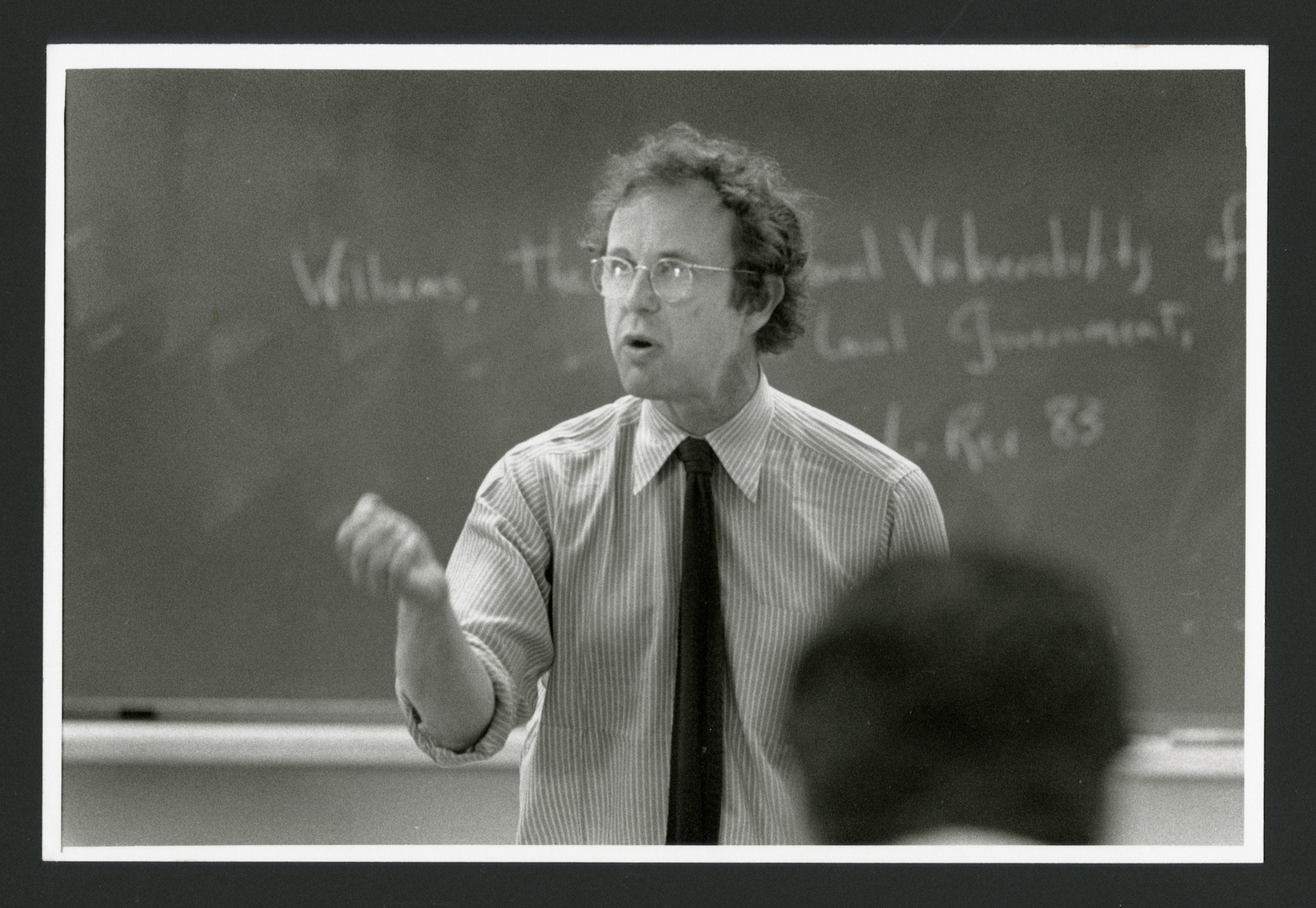
Frug published dozens of articles on the topic of local government, including the seminal “The City as a Legal Concept.” He also wrote several books including “City Bound: How States Stifle Urban Innovation” with Barron, and “City Making: Building Communities without Building Walls,” the award-winning book that was influential in design, planning, and urban theory circles in the United States and around the world. Frug also published the casebook “Local Government Law,” now joined by Barron, Michelle Wilde Anderson, and Richard T. Ford ’91. (In a tribute on the occasion of Frug’s retirement in 2019, Barron noted that the casebook “is the first — and probably the last” to begin each section with a quote from Italo Calvino, author of the novel “Invisible Cities.”)
“Jerry Frug was a uniquely brilliant lawyer and scholar,” said Ford, a former student of Frug’s and now a professor at Stanford Law School. “He single-handedly reinvented the subject of local government law, turning it from a narrow and technical topic into a study of urban development, political economy, social interaction in cosmopolitan societies and the foundations of democratic government. He was a profound scholar of political and social theory, and he applied the most important insights of legal realism, Critical Legal Studies and qualitative social science to the most important questions facing our society. His work yielded surprising and invaluable insights into questions of economic inequality, racial division, gender roles, and environmentalism. He was not only erudite but also disarmingly witty; he was generous with his time and insights and a fierce champion of social justice. He also had a mind-blowing collection of modern photography. For me, he was one of a very small number of people who defined Harvard Law School. I will miss him terribly.”
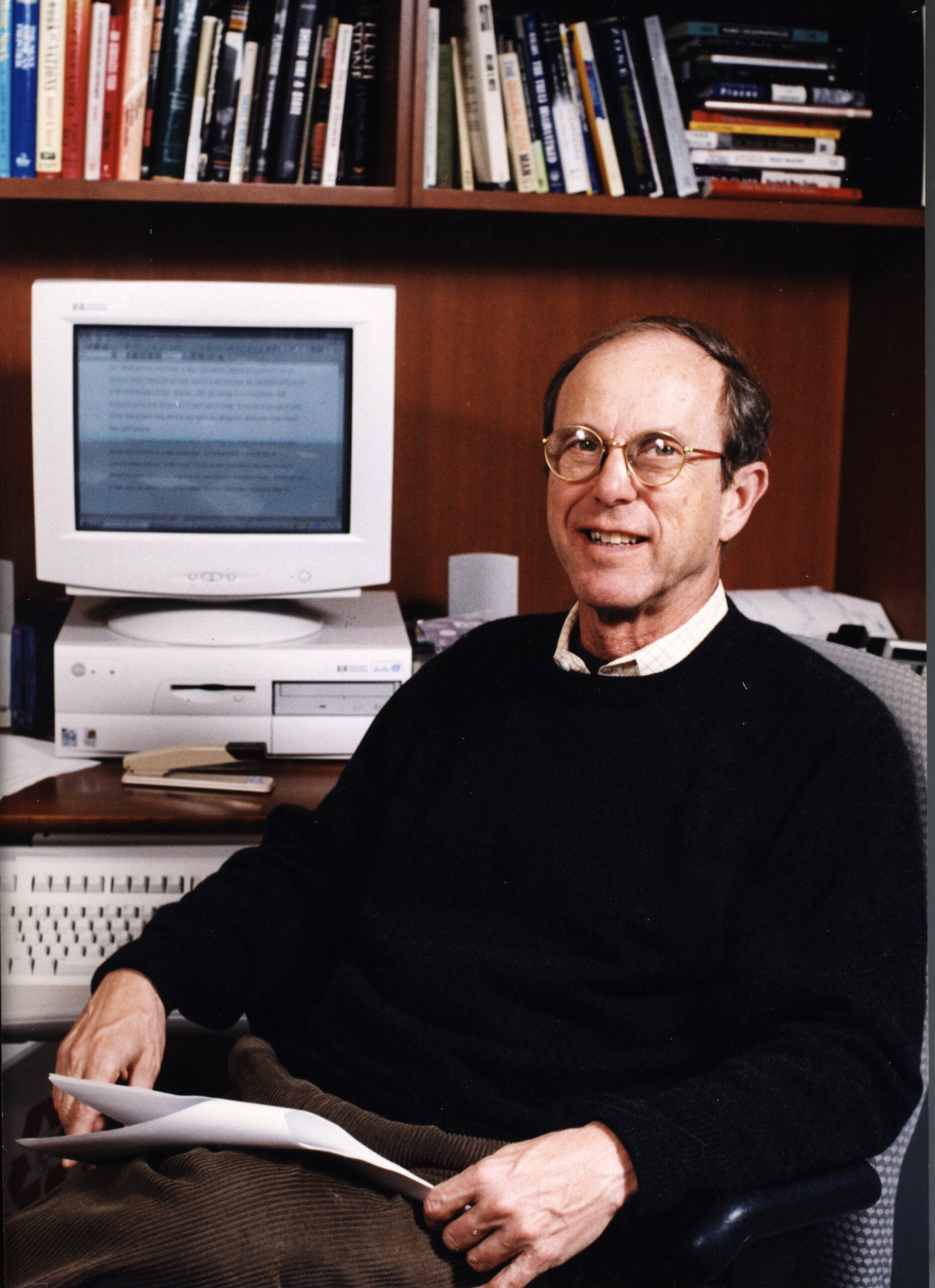
Nikolas Bowie ’14, Louis D. Brandeis Professor of Law at Harvard Law School, recalled going to talk to Frug in his office for the first time, to ask him about his Ph.D. dissertation topic, long before Bowie was a law student. “Meeting with him was like slow-pitching baseballs at the home run derby—he took every small thought I had and blasted it around the room, showing how it related to books and articles and ideas I had never heard of. I was so dazzled that I kept returning for more until I finally became a law student and took his classes. More than anyone, Jerry has shaped the way I approach local government law; he is the reason I teach it today. It has been an honor simply to follow in his footsteps.”
“Meeting with him was like slow-pitching baseballs at the home run derby—he took every small thought I had and blasted it around the room, showing how it related to books and articles and ideas I had never heard of. I was so dazzled that I kept returning for more until I finally became a law student and took his classes.”
Nikolas Bowie ’14, Louis D. Brandeis Professor of Law at Harvard Law School
Martha Minow, 300th Anniversary University Professor, noted that Frug’s approach to local government law integrated a range of other disciplines, “all in service of human-centered community building. He brought the same broad and inclusive approach to his classrooms which inspired generations of students to put people at the center of legal problems and to draw upon insights and frameworks well beyond law. With his enthralling personal qualities of curiosity and generosity, he was an ideal colleague and friend and extraordinary father and grandfather whose legacies will long be cherished.”
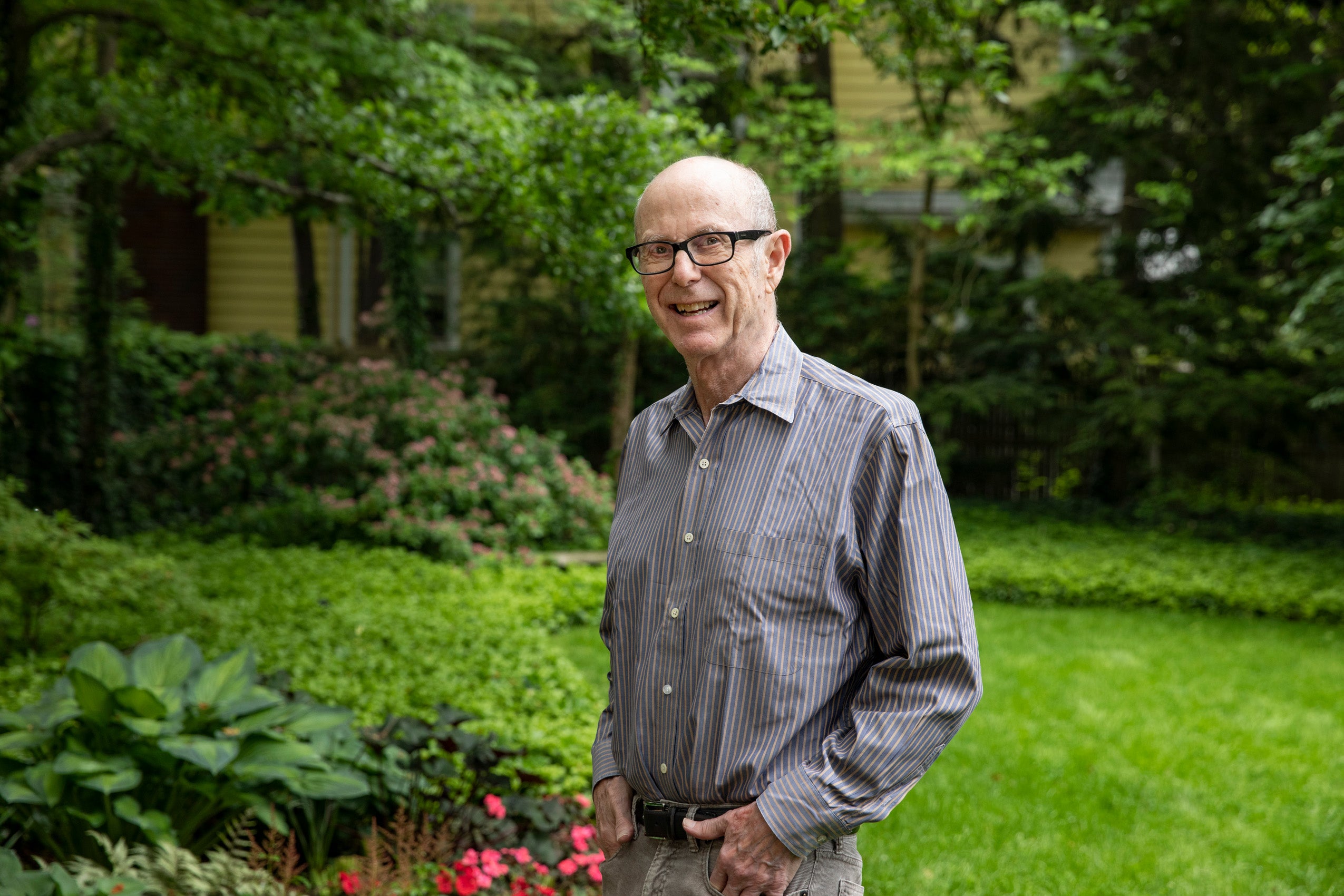
“Jerry believed passionately in the revolutionary power of ideas,” said Christine Desan, the Leo Gottlieb Professor of Law at Harvard. “If we could see the world anew, we could make the world anew. If we could open our minds, then we would put our hands to work, work that lifted communities, increased equality, and built dialogue between strangers. We need his vision more than ever today.”
Outside the United States, Frug was one of the creators of a series of conferences, called Urban Age, through the London School of Economics. They brought together academic and local officials whose work focuses on the cities where the conferences took place. Cities involved included Shanghai, Mexico City, Mumbai, Istanbul, Johannesburg, Sao Paulo, and London.
“Jerry engaged the world with equal measures of passion and dispassion, a world that endlessly both amused and outraged him,” said David Kennedy, Manley O. Hudson Professor of Law at Harvard. “A profound thinker, he carried ideas lightly, ironically, thrilling to the pleasures of collaborative intellectual exploration in the classroom and beyond. Throughout his life, Jerry forged deep friendships and loved the energy of collaborative projects and politics. He brought a calm wisdom and care to his interactions with students and colleagues alike.”
In addition to teaching local government law, Frug often offered a seminar, called Green New York, co-taught with attorneys from the Law Department of the City of New York and David Barron. The course explored the legal problems facing the environmental agenda of the New York City government. Other seminars he taught covered a wide range of topics, ranging from Tocqueville to Postmodern Legal Theory to Comparative Local Government Law. He had also taught Contracts virtually every year since the beginning of his teaching career.
Frug began his career after graduating from Berkeley and Harvard Law, working as a special assistant to the chairman of the Equal Employment Opportunity Commission in Washington, D.C. He went on to serve as health services deputy administrator of the City of New York before he began teaching in 1974 at the University of Pennsylvania Law School. He joined the Harvard Law faculty in 1981.
Frug was preceded in death by his wife, Mary Joe Frug. He is survived by his children Emily Frug Klineman ’00 and Stephen Frug, their spouses Jeffrey Klineman and Sara Frug, and his grandchildren Charlie, Jake, and Joseph.
